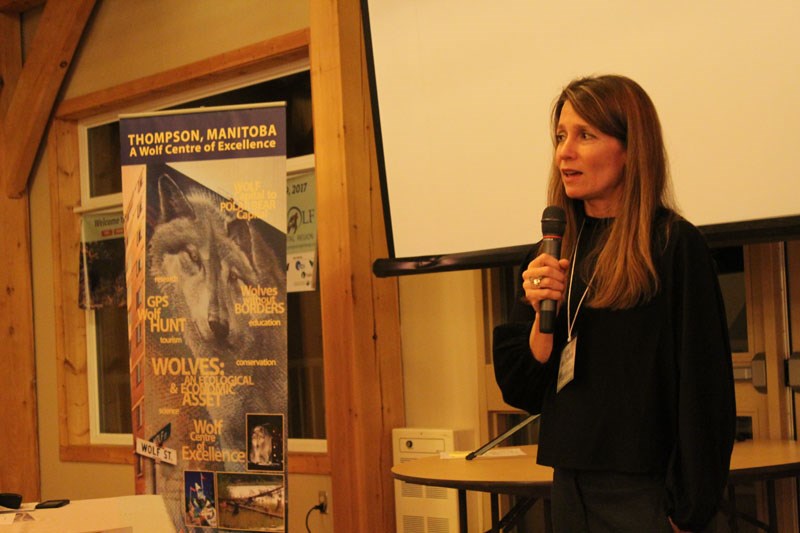After a five-year absence, the Wolf and Carnivore Conference finally made a return to Thompson this past week.
From Oct. 18–20, a collection of wildlife academics, scientists, activists, and researchers took up residence at Riverlodge Place to discuss a variety of topics related to their respective fields. While the overall number of attendees was down from the 2012 conference, the event organizers still managed to attract a diverse group of voices from Canada, the United States, and even Russia.
One of the returning attendees from the first Wolf and Carnivore Conference was Rob Schultz, the executive director of the International Wolf Centre located in Ely, Minnesota.
Schultz told the Thompson Citizen that the conference started off on a high note with a charter trip to Churchill on Oct. 17, where he and other attendees got the chance to take pictures of wild foxes, hares and polar bears from atop a large Tundra Buggy.
“Churchill is just a spectacular place,” said Schultz. “When you go there you just can’t help but to fall in love with the polar bears and the community and the area. And I think whenever you have that opportunity to experience wildlife that’s what really connects with people.”
Throughout the next couple days, the rest of the conference’s events consisted of speaking engagements at Riverlodge Place here in Thompson.
This list of speakers included venerated experts such as Dr. Gilbert Proulx and Dr. Dave Mech, who both gave their respective takes on whether or not wolves are responsible for declining moose and caribou populations in the north.
Author Erin McCloskey also served as one of the conference’s keynote speakers and gave a talk about the research covered in her book Wolves in Canada.
One of the world’s foremost experts on polar bears, Dr. Nikita Ovsyanikov closed out this year’s conference on Friday with a workshop that went over the proper ways to approach these large carnivores in the wild.
“To have the chance to take that workshop with such an expert like Nikita was pretty fantastic,” said attendee Trevor Gill, who is the creative director of Build Films, a Winnipeg-based production company.
Gill mentioned that Ovsyanikov’s methodology on how to read polar bear’s mood and body language will definitely come in handy since he and his crew are prepping for an expedition up north to film these large animals.
“We learned a lot about being in close proximity and how to read situations,” said Gill. “We basically learned his system and will take it forward into our work.”
Outside of hosting these different speakers, this year’s Wolf and Carnivore Conference also served as an opportunity to test out Thompson’s potential as an ecotourism hot spot.
Organizer Volker Beckmann has been trying to push the idea of building a Wolf Centre of Excellence for a while now, and organized a pair of planning sessions throughout the week to get some feedback from different attendees.
Being the head of a similar kind of facility in northern Minnesota, Schultz is definitely in favour of this project, as long as Thompson can deliver on the promise of showcasing live animals to the public.
“We’ve got exhibits, we’ve got a theatre … but the number one thing that ecotourists come to see is the wildlife,” said Schultz. “So I think that’s really the next step that Thompson needs to take in order to get onto a bigger plane in terms of wolf ecotourism.”
Schultz also believes that an increased emphasis on tourism could help alleviate some of the anxiety surrounding the recent job loses at Vale.
“In Ely, where our centre is, that was a mining community and the mines closed,” he said. “When they closed tourism had to become really the major economic driver of that area and it continues to be really core to a lot of people’s jobs and livelihoods today.”
While Beckmann isn’t exactly sure when the next Wolf and Carnivore Conference will take place, he’s hoping that they can put something together every two or three years instead of five.
However, he is planning to tabulate everyone’s feedback on the Wolf Centre of Excellence and release a document on how to proceed with this project in the next 60 days.




